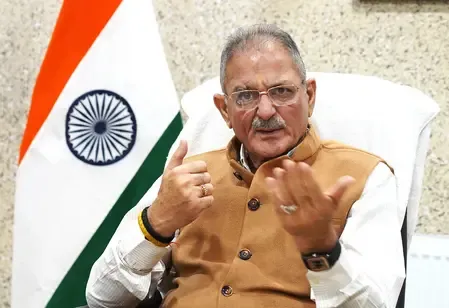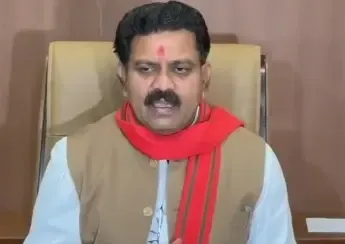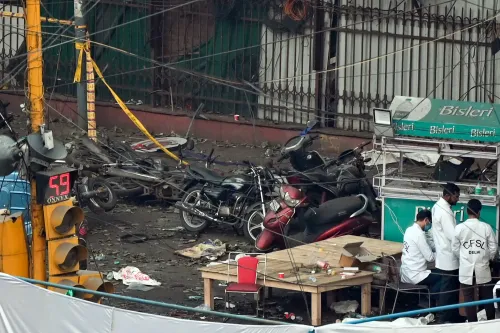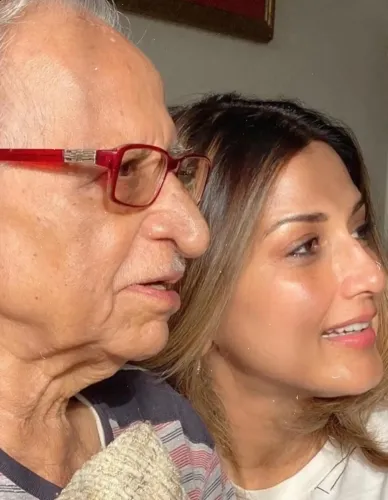Are Some Universities Fueling White Collar Militancy in India, Questions Ladakh L-G Kavinder Gupta?

Synopsis
Key Takeaways
- White-collar militancy is a growing concern for India's internal security.
- The Central government has made significant strides in controlling extremism.
- Some universities may play a role in fostering this militancy.
- Recent operations by the Enforcement Directorate highlight ongoing investigations into financial irregularities.
- Resilience of agencies and the police is critical in countering external threats.
New Delhi, Nov 19 (NationPress) Ladakh Lieutenant Governor Kavinder Gupta expressed concern on Wednesday that “white-collar militancy” remains a significant threat to India's internal security, despite the progress made in combating extremism.
His comments followed an explosion near the Red Fort Metro station in Delhi, which resulted in a multi-agency response, including action by the Enforcement Directorate.
Discussing the overall security landscape, L-G Gupta noted that the Central government has effectively curtailed militancy and radicalization under the stewardship of Prime Minister Narendra Modi.
“While the efforts of the Central government and Prime Minister Modi have made strides in managing militancy and radicalization, there are still individuals engaged in ‘white collar militancy’ who aim to undermine the stability in India. Certain universities appear to contribute to this issue, with specific educators and staff establishing strong connections,” he stated.
The L-G warned that external hostile forces are also working to destabilize the nation. “Our neighboring countries do not wish to see India thrive and develop. They may continue their attempts to instigate unrest; however, our agencies are robust, our populace is resilient, and our police force is capable,” he added.
This statement coincided with a major operation launched by the Enforcement Directorate concerning the Red Fort blast.
On Tuesday, the ED detained Jawad Ahmed Siddiqui, the founder of Al Falah University and its Chairman, placing him in a 13-day ED custody linked to a terror-financing money laundering case.
The arrest is part of an ongoing inquiry into significant financial discrepancies at the university.
Previously, the ED conducted coordinated searches at over 25 locations associated with the Al Falah group on Tuesday, starting early in the morning. The operations included the university's headquarters in Okhla, its Jamia Nagar office, and properties related to its trustees. Security was heightened across the area during this period.
The university came under scrutiny after three doctors affiliated with it were identified as suspects in the explosion. A forensic audit of the institution’s finances has been mandated, and the Delhi Police’s Economic Offences Wing has also joined the investigation.
While the NIA is spearheading the inquiry into the explosion itself, the ED and the Economic Offences Wing are examining potential financial misconduct, shell companies, and possible money laundering linked to the Al Falah Trust and associated entities.









